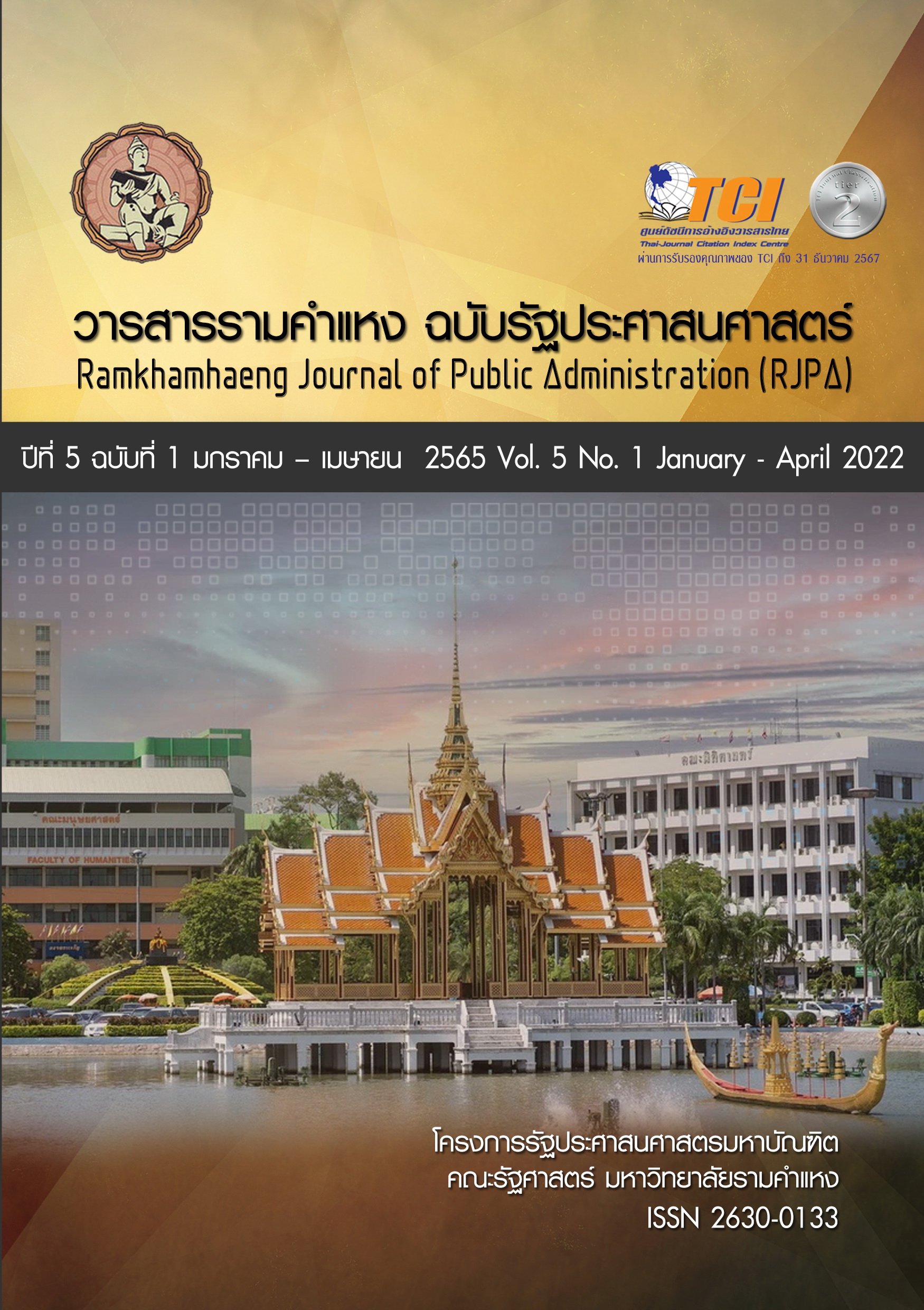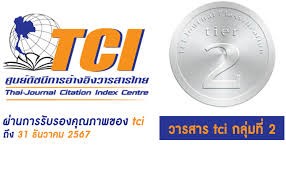การตัดสินใจเลือกสมาชิกสภาผู้แทนราษฎรของประชาชนในเขตกรุงเทพมหานคร (The decision to choose members of the House of Representatives of people in Bangkok)
Abstract
บทคัดย่อ
งานวิจัยนี้เป็นแบบผสมผสาน เพื่อศึกษา (1) การตัดสินใจเลือก ส.ส. ของประชาชนในเขต กทม. (2) ความสัมพันธ์ระหว่างปัจจัยส่วนบุคคล การรับข่าวสารทางการเมือง และทัศนคติทางการเมืองกับการตัดสินใจเลือก ส.ส. กลุ่มตัวอย่าง คือ ผู้ไปใช้สิทธิเลือกตั้งในเขต กทม. สุ่มตัวอย่างแบบเฉพาะเจาะจง ใช้แบบสอบถามและแบบสัมภาษณ์เป็นเครื่องมือเก็บรวบรวมข้อมูล วิเคราะห์ข้อมูลโดยใช้สถิติ ร้อยละ ค่าเฉลี่ย ส่วนเบี่ยงเบนมาตรฐาน One-way ANOVA และ Regression Analysis ผลการวิจัย ผู้ตอบแบบสอบถามส่วนใหญ่ รับข้อมูลข่าวสารเกี่ยวกับการเลือกตั้งจากช่องทางทีวี (ร้อยละ 88.6) และโซเชียลมีเดีย (ร้อยละ 84.5) ชอบรับข้อมูลข่าวสารเกี่ยวกับการเลือกตั้งจากช่องทางโซเชียลมีเดีย (ร้อยละ 41.7) มีทัศนคติในระบอบประชาธิปไตยค่อนข้างสูง มีความเข้าใจระบบการเมืองเชิงโครงสร้างค่อนข้างมาก(Mean = 4.26) การรับรู้ข่าวสารทางการเมืองอยู่ในระดับปานกลาง (Mean = 3.43) ตัดสินใจเลือก ส.ส. จากคุณสมบัติของตัวผู้สมัคร (Mean = 4.21) นโยบายของพรรคการเมือง (Mean = 4.04) พรรคการเมือง (Mean = 3.97) สิ่งตอบแทนและผลประโยชน์ที่จะได้รับ (Mean = 3.19) ตามลำดับ และมีความพึงพอใจหลังทราบผลการเลือกตั้งอยู่ในระดับน้อย (Mean = 2.04) ผลการทดสอบสมมติฐาน ปัจจัยส่วนบุคคล (อายุ ระดับการศึกษาสูงสุด อาชีพ และรายได้ต่อเดือน) ต่างกัน มีผลต่อการตัดสินใจเลือก ส.ส. แตกต่างกัน ช่องทางการรับข่าวสารต่างกัน มีผลต่อการตัดสินใจเลือก ส.ส. ไม่แตกต่างกัน การรับข่าวสารทางการเมือง และทัศนคติทางการเมืองมีผลต่อการตัดสินใจเลือก ส.ส.
Abstract
This research employs mix methods to examine (1) decisions of people in Bangkok to elect members of the House of Representatives (2) relations between personal factors, political news exposure, political attitude and the decision to choose a member of the House of Representatives. The sample group were those who exercised right to vote. By using a specific sampling method, questionnaires and interview form were used as tools to collect data. Data were analyzed by employing percentage, mean, standard deviation, One-way ANOVA and regression analysis. Findings are as follows: most of the respondents were received information about elections from TV channels (88.6%) social media (84.5%) prefer to receive information about elections from channels social media (41.7%). The political attitude at a high level (Mean = 4.26), political news awareness at a moderate level (Mean = 3.43). Decide to select members of the House of Representatives based on the candidate's qualifications (Mean = 4.21), political party policies (Mean = 4.04), political parties (Mean = 3.97), rewards and benefits (Mean = 3.19), respectively and satisfaction after knowing the results of the election at a low level (Mean = 2.04). The hypothesis testing results are as follow: different personal factors (age, the highest education level, occupation, and monthly income) cause different effect on the decision to choose a member of the House of Representatives, different channels for receiving news cause no effect on the decision to select the members of the House of Representatives, receiving political news and political attitude did not affect the decision to choose a member of the House of Representatives.




 Publication Policy (นโยบายการตีพิมพ์บทความ)
Publication Policy (นโยบายการตีพิมพ์บทความ) Publication Ethics (จริยธรรมการตีพิมพ์บทความ)
Publication Ethics (จริยธรรมการตีพิมพ์บทความ)